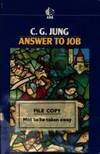

 |

|

The average rating for Apologetic lectures on the fundamental truths of Christianity based on 2 reviews is 4 stars.
Review # 1 was written on 2008-11-30 00:00:00 Ivan Lindstroem Ivan LindstroemIn Jung's dense and wild meditation on Christianity, published nine years before his death, he seeks some lofty antecedents, but lets his fast and loose language of archetype cover for some questionable footwork. Jung clearly built his book as an homage to Kierkegaard's Fear and Trembling, substituting the philosopher's exegesis of Isaac and Abraham for an inquiry into the nature of Job. For Kierkegaard, several Rashoman-like retellings of the story eventually yield to furious, brooding analysis in the face of the absurdity: A father willing to kill his son for his faith. Kierkegaard's study culminates with the introduction of Jesus Christ as the Christian password to an intractable Old Testament cipher. Jung, however, has chosen a parable with considerably fewer hand-holds. Instead of father and son as human protagonists, the bible presents only Job (with a supporting cast of his friends). Instead of a denouement on Mount Moriah, Job's trial culminates with Elihu's mediation on behalf of his friend. While Kierkegaard sucks the ethical marrow from his story through painstaking study, Jung blasts at the story of Job with his full arsenal of newfangled clinical terms, launching his little book into an atmosphere of conjecture that better befits his heady era than ours. His basic thesis is that a) the god of Job is an unconscious psyche with no capability for self-reflection, and hence an enormous capacity for breaking his own laws, and b) this god envies man's moral and self-reflective abilities and wishes to become a man himself. If Jung had left things at that, this book would be shorter, neater, and more widely accepted into the philosophical canon. Instead, Jung, at full warp-drive capacity, speeds directly to Revelations via the Book of John, which he assures us, via his clinical authority, share the same author. Large heapings of apocrypha serve to further muddy things, wherein Jung seems convinced his reader (or followers) will accept Sophia as God's queen, Lilith as Seth's mother, the Virgin Mary as an incarnation of Sophia, and many, many other staples of New Age, Kabbalah-drenched Christianity. Nevertheless, Jung presents a fascinating notion of a many-sided god who seeks to compensate for his Old Testament extremes by continuously incarnating himself in Jesus, the Holy Ghost, and in Jung's mind, many other characters, including, if you read long enough, you and I. Brave and bold surveys of metaphysics should certainly consider adding Jung's early chapters on Job's plight as a rider to Kierkegaard's seminal examination of the ethics of faith. |
Review # 2 was written on 2008-06-11 00:00:00 Vincent Ho Vincent HoJob is the most beautifully written book in the bible, period. It's more prose than anything else. Jung's Answer to Job's cry of 'Why' is amazing. Jung believed in God, which is pretty amazing when considering the stance of most of his contemporaries. His answer to the ultimate question of suffering is worthy of anyone's time, believer or not. |
CAN'T FIND WHAT YOU'RE LOOKING FOR? CLICK HERE!!!